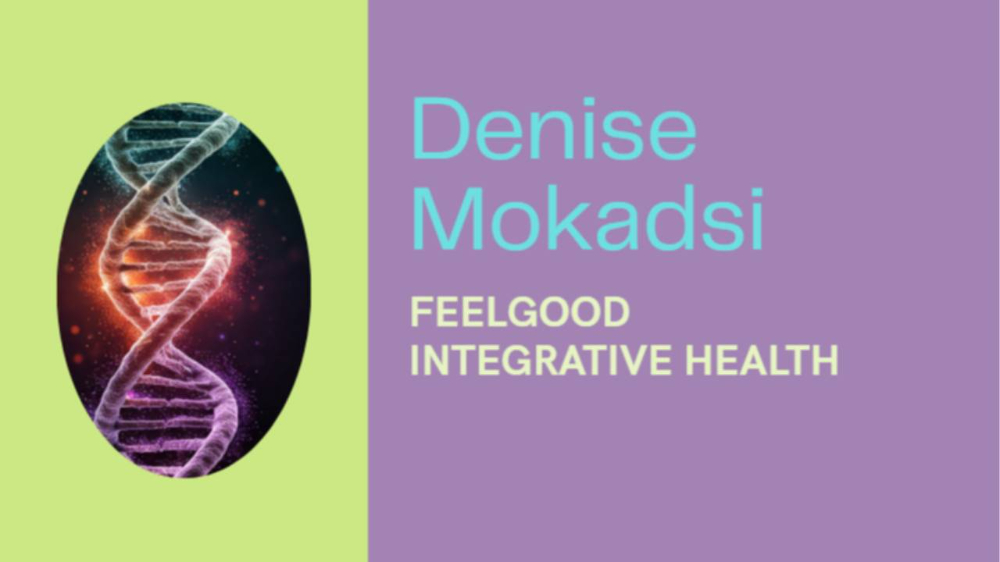Improve Bone Health With Epigenetics

Osteoporosis is a complex multifactorial disorder of the skeleton with increasing risk as we age. Genetic factors are important in determining bone mass and structure, as well as the predisposition to bone deterioration and fragility fractures.
Nonetheless, they alone are not sufficient to explain osteoporosis development and fracture occurrence. Epigenetic factors, representing a link between individual genetic aspects and environmental influences, are also strongly suspected to be involved in bone biology, osteoporosis and aging.
Aging well requires strong bones. An understanding of the epigenetic mechanisms could help in the individual treatment of bone disorders, according to precision medicine's principles. Achieving optimal health outcomes requires an individualised approach. Central to the current discussion of personalised health and the revolution it is having on changing the way we view health strategies, is the concept of epigenetics. This may or may not be a term you are familiar. This blog will help to explain what epigenetics is and what it means for you and your bones.
What is epigenetics?
The prefix “epi” means above or outside. Epigenetics is the study of how factors like our lifestyle and environment can cause changes that affect the way our genes are expressed. Epigenetic modifications while reversible do not change our DNA sequence but they can change how our body reads a DNA sequence to influence how we look, feel and behave.
How is this relevant to bone density?
Osteoporosis is a metabolic bone disorder that develops when there is a decrease in bone mineral density and bone mass, or when the structure and strength of bone changes. Environmental and lifestyle factors such as our nutrition, movement, where we live, our relationships, and even the type of work we engage in, have an epigenetic influence. This means they influence the way our genes are expressed – including those that determine our bone integrity. Almost everything we do has the potential of affecting how our genes are expressed. This is good news because it means that we are not at the fate of our genes as was once thought.
Recent studies have shown that epigenetics is estimated to be one of the most contributing factors to the emergence and progression of osteoporosis (1). A study completed by Francesca et al (2) found that epigenetics is a key factor in osteoporosis. This is significant because it empowers us to have control over our health rather than being fated by the genes we are born with.
Choosing to engage in health promoting behaviours can become a powerful preventive measure for osteoporosis. For example, in other studies, it has been shown that birth weight can predict adult bone mass and density. Therefore, choices regarding prenatal nutrition may be a determinant of bone strength in later life (3).
What positive epigenetic influences can you make to reduce the risk of osteoporosis?
Research has indicated that elements in the environment like nutrition, exercise, stress levels and age may alter epigenetics, thereby influencing gene expression and metabolism in bones. There are many lifestyle behaviours that can improve bone density. Here are some examples:
Nutrition: Eat whole unprocessed natural foods, minimise processed foods and preservatives, and avoid alcohol and smoking to improve bone mineralisation and muscle composition.
Exercise: Incorporate several sessions per week of cardiovascular and resistance training to build muscle mass and bone density.
Stress: Mitigate stress levels with strategies such as relaxation, meditation, breathing exercises, journalling, healthy expression of negative emotions to reduce the effects of hormonal disruption to our gene expression.
Understanding epigenetics may help you improve your bone health - and you can start right now.
Learn more about how to personalise your life to suit your epigenetic code with an epigenetic assessment.
References
- https://www.frontiersin.org/journals/genetics/articles/10.3389/fgene.2023.1153585/full
- https://www.ncbi.nlm.nih.gov/pmc/articles/PMC5000726/
- https://pubmed.ncbi.nlm.nih.gov/20123139/
